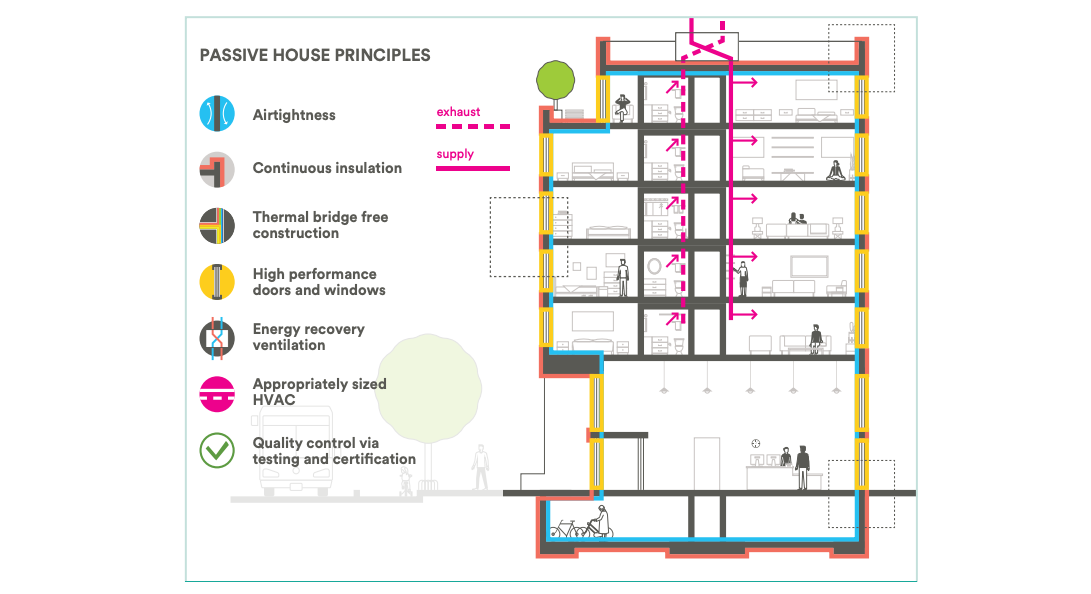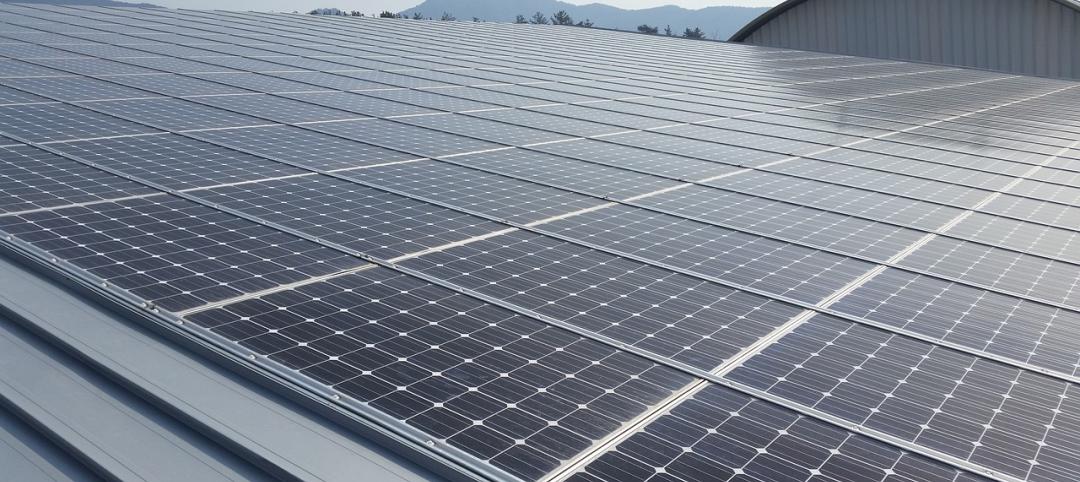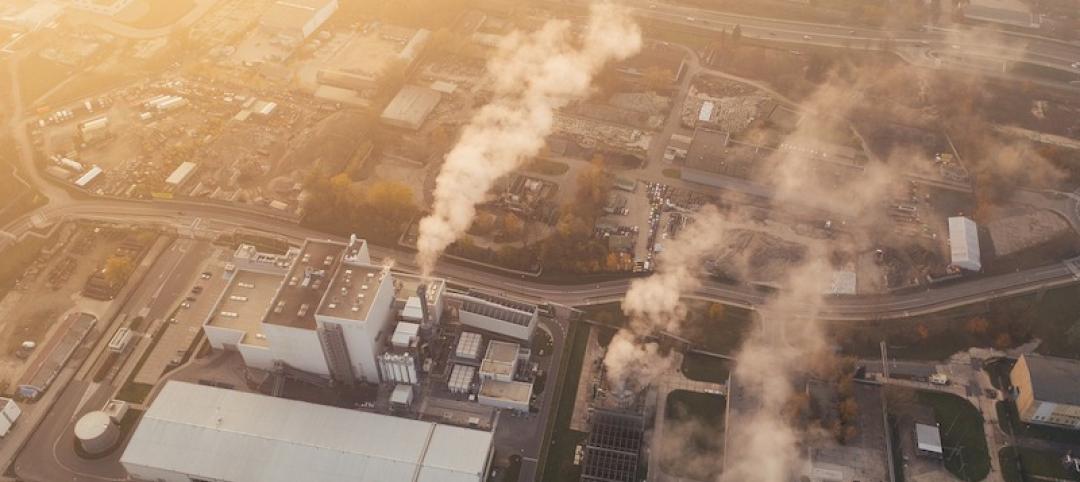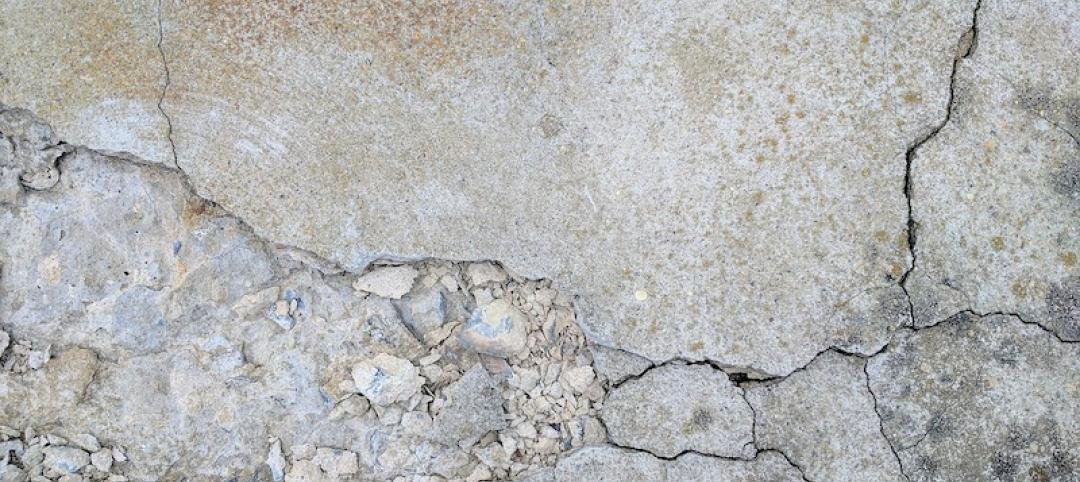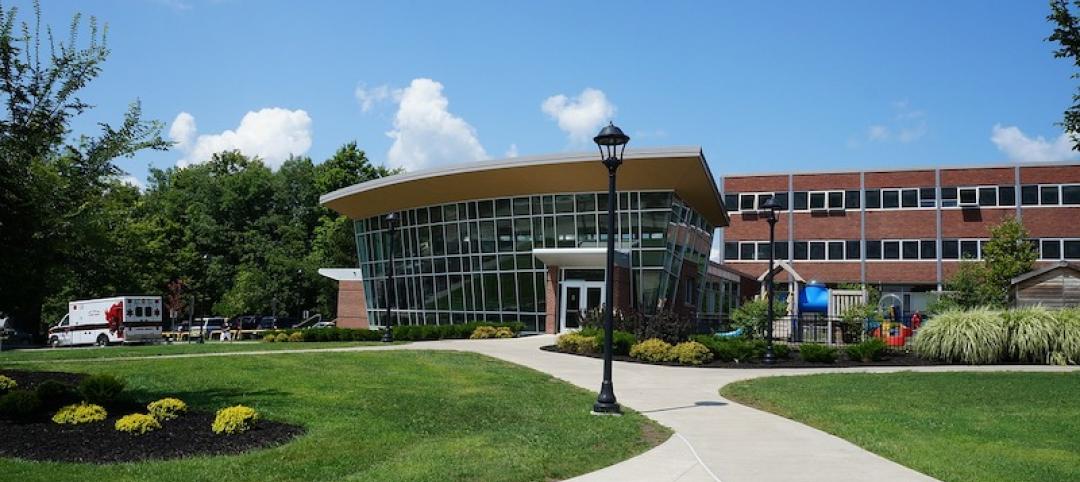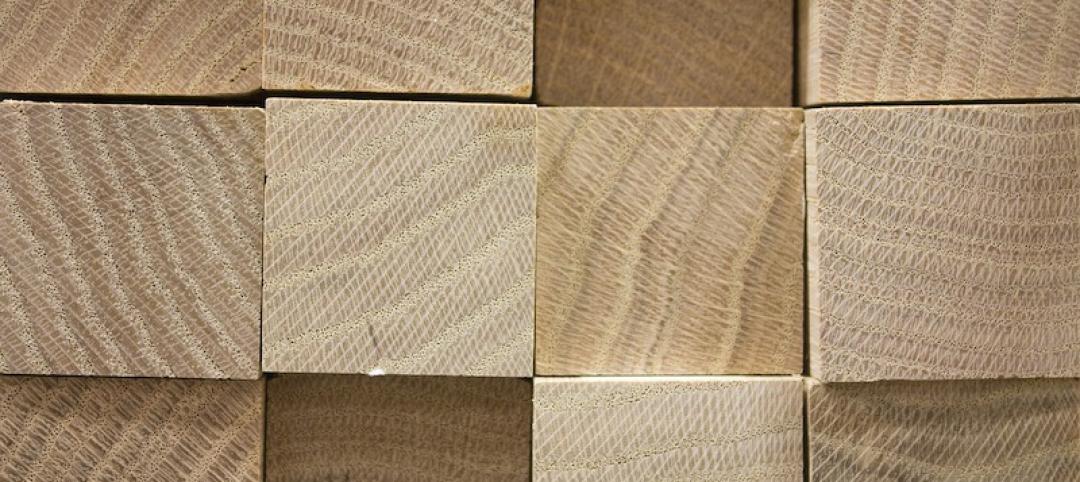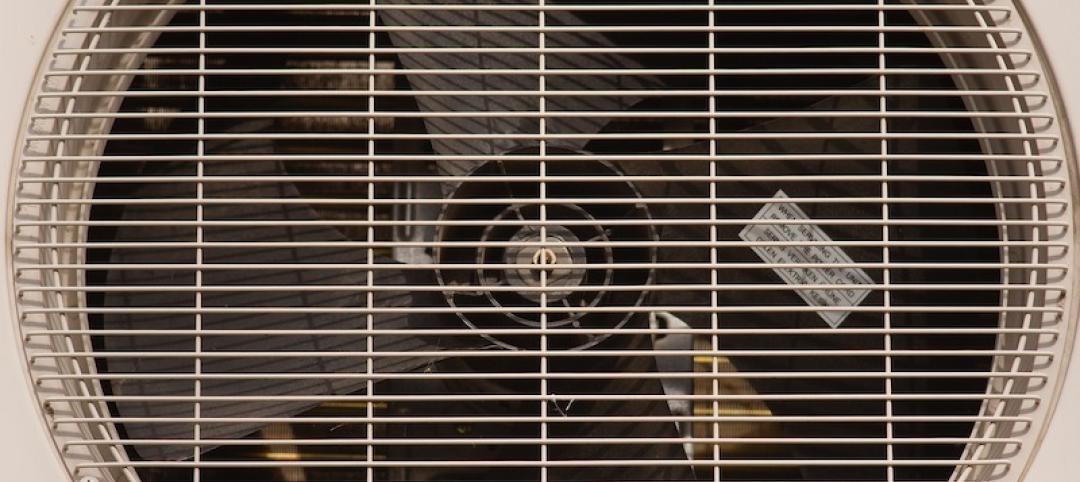A recent study from the New York City Department of Housing Preservation and Development, the Community Preservation Corp., BrightPower and Steven Winter Associates, found that multifamily dwellings built to Passive House standards significantly outperformed conventionally built buildings in energy efficiency.
The study compared Passive House structures to two control groups: one consisting of New York City multifamily buildings built before 2003, and the other comprised of conventional new construction properties built after 2003. When comparing energy use, the Passive House buildings outperformed the post-2003 buildings by 32% to 58%.
Passive House upfront costs are up to 5% higher than conventionally built structures. But, the report asserts that the cost premium is likely to decrease as components become more widely available and cost-efficient.
Obstacles to wider Passive House adoption include a lack of experience and familiarity with the process of designing and building larger-scale Passive House developments among contractors and owners. The study also found that Passive House residents enjoy more consistent interior temperatures, humidity levels, and better acoustic comfort than those living in traditional buildings.
Related Stories
Codes and Standards | Sep 2, 2020
California releases guide for state water policy
Water Resilience Portfolio is roadmap for meeting water needs as climate changes.
Codes and Standards | Aug 31, 2020
Fenestration alliance updates fenestration sealants guide
First update to 2009 document.
Codes and Standards | Aug 25, 2020
Platform will allow researchers to test energy system integration at scale
The U.S. Department of Energy’s (DOE’s) National Renewable Energy Laboratory (NREL) recently launched the Advanced Research on Integrated Energy Systems (ARIES) platform.
Codes and Standards | Aug 20, 2020
Wariness of elevators may stymie office reopening
Workers could balk at returning to high-rises.
Codes and Standards | Aug 19, 2020
Existing laws may be restricting efforts to cut carbon emissions
Outdated policies favor fossil fuels.
Codes and Standards | Aug 18, 2020
Florida becomes the third state to adopt concrete repair code
Sets minimum requirements for design, construction, repair of concrete structural elements in buildings.
Codes and Standards | Aug 17, 2020
ASCE seeks comments on seismic standard
Pertains to design criteria for nuclear facilities.
Codes and Standards | Aug 13, 2020
COVID-19 reboot guide offers strategies for reopening K-12 schools
Looks at space considerations for reopening at different scales.
Codes and Standards | Aug 12, 2020
Document provides guidance for mass timber construction
Overview of Intl. Building Code requirements included.
Codes and Standards | Aug 11, 2020
Inefficient air conditioning is a key contributor to global warming
More efficient equipment and buildings could make a big difference.


